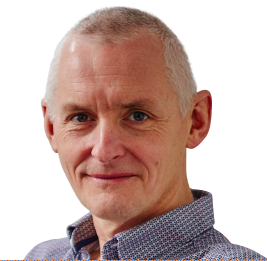The Moral Maze is a regular on the Radio 4 schedule if ever you fancy it. It’s a cross between wrestling on World of Sport and one of those pompous highbrow programmes my parents used to pretend to enjoy on BBC 2 in the 1970s.
Like its BBC predecessor it’s also pretty pompous – highbrow, intellectual and slightly sneering. But, like its ITV predecessor, the protagonists tear strips off each other in the name of entertainment. A sort of morally corrupt Giant Haystacks taken apart cerebrally by the ethically pure Big Daddy.
The fascinating thing about the Moral Maze (and wrestling) though is that there is plainly no single answer. There are angles and arguments, there are shades of grey and opinion, there are points for and points against but there is no definitive, solid, tangible, undisputed champion of the world. What one protagonist considers moral, another can conclude is immoral. And vice versa. Less a moral maze, with a single destination, more a moral mess.
Fortunately, as a trustee running a number of pension schemes – big, small, open, closed, DB and DC – I don’t have to trouble myself (in the day job anyway) with what’s moral. I am not in the business of making moral judgements. That said, I am surprised at how many times I find myself wrestling with other people’s moral messes.
ESG is finally becoming mainstream – driven by governmental and regulatory intervention, with help from a few, perhaps slightly 1970’s BBC 2-like special interest groups. But with it becoming mainstream and widespread, so too has confusion about what it is.
ESG, also known as socially responsible Investing, or impact investing or, well a whole host of other names (and, incidentally, that mess of names is adding to the confusion), is really about one thing and one thing only. And it is not morality. It is the process of identifying the long- term financial risks that exist within the portfolios of investments that we manage and deciding what we do about them. Granted, the law requires us to focus our attention on the long-term financial risks that exist under three specific headings i.e. environmental, social and governance – with a special shout out in the regulations for a specific environmental risk; climate change. But be quite clear, they are merely calling us to manage long-term financial risk. They are not calling on us to reach moral conclusions.
Oil, for example. Now there is no doubt, based on the majority of scientific evidence, that fossil fuels contribute to global warming. This is an evidence-based statement. As a result it is possible to make an evidence-based decision on whether or not to invest in oil.
Now I completely accept it’s not a clear-cut decision, but what investment decision ever is? And it’s a complex decision that needs to be based on many factors: what return do I need, over what period of time and how quickly do I need to be able to move in or out? But it is, none the less, an evidence-based, economics- driven decision. It is not, for a trustee at least, a moral decision.
And hence the confusion. It is also possible to consider oil investment through a moral lens. “I see oil causes global warming. I don’t want to contribute to that. I will therefore not invest in oil stocks.” Fair enough, I have absolutely no problem with a private investor, perhaps even me outside of work, running that analysis and reaching that conclusion. It is not, however, as a trustee, for me.
I have a fiduciary responsibility to act in the best interests of others. In the context of looking after their money, that means getting the best possible return given all other requirements. So if oil produces a good return, given all other requirements, in oil I must invest. The ESG rules simply require me to consider long-term financial risks when I make that decision.
That’s fine. But those long-term financial risks may not be incompatible with my requirement, maybe because I won’t need to hold for very long, or because I can see the oil company in question is also a major investor in renewable energy – thus giving their return more long term potential.
I am here to make decisions based on hard economics. I do not need to wrestle, Kendo Nagasaki-like, with a highbrow and intellectual moral maze.





